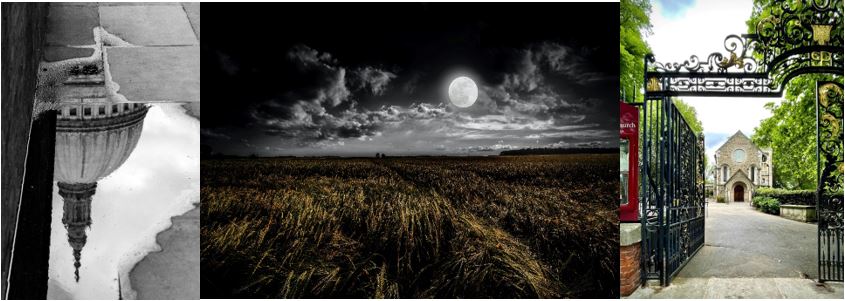
You are here
- Home
- Writing place: what haunts the landscape of modern Britain? A creative writing conference, April 2023
Writing place: what haunts the landscape of modern Britain? A creative writing conference, April 2023
(Image credits: Rohan Rangaswami on Unsplash; Luca on Unsplash; Philip Seargeant)
This one-day conference will consider the strategies writers use to explore place and their relationship with the environment, both real and imagined.
The creation of setting is central to the way in which writers bring their worlds to life. However, beneath the streets, mountains, waterways and byways of Britain, lie secrets, ghosts and the haunting of history. This conference will explore how writers draw on the idea of place and identity in their practice, as well as providing participants with the opportunity to engage in practical exercises as they are invited to track shadows and history through the streets of London.
The day will consist of talks, panels, and Q&A discussions, offering a variety of topics such as poetry, nature writing, fictional worldbuilding, and a virtual writing tour of an area near to the conference venue. Speakers include Helen Mort, Jessica Mookherjee, Ed Hogan, Philip Seargeant and Sarah Butler.
Registration: There is a £20 conference fee. The day includes lunch and refreshments. Book here
Key terms: Creative writing, psychogeography, hauntology ("Cultural memory and the persistence of the past" Coverley, Merlin 2020), world building, life writing, fiction, poetry .
Venue: Senate House, University of London, Malet Street, London WC1E 7HU Rooms G3, G4, G5
When: Thursday 20th April, 2023 10:45am – 4.30pm (arrival and refreshments from 10.15am)
Contact: IESEvents@sas.ac.uk or CCWriitngOU@open.ac.uk
Schedule:
|
10.15 – 10.45 |
Tea and coffee |
|
10.45 – 11.00 |
Introduction and welcome - Derek Neale |
|
11.00 – 11.40 |
Helen Mort: A Line about the Sky – Exploring place in memoir, poetry, and fiction. Helen’s memoir A Line Above the Sky explores mountain literature and environments, examining the paradox of being a mountaineering mother: always feeling in the wrong place. Are writers also people who continually feel ‘out of place’? Can we use this as a strength in creative-critical evocations of landscape? Helen’s talk will draw on her background as a poet and fiction writer in pursuit of answers (and further questions). |
|
11.40 - 12.20 |
First panel - Chaired by Nicola Watson |
|
|
Ed Hogan: Work/Place - In contemporary short fiction, depictions of work often provide a deep insight into the social and geographical aspects of particular places - both real and imagined. This link between place and work might encourage fiction writers to engage with other disciplines (economics, human geography) and other methods, such as participant observation, and the workers' enquiry. The presentation will feature short fiction addressing these themes and concerns. |
|
|
Elizabeth Dearnley: The secret diary of Bloomsbury - Since October 2017, the streets, squares and gardens of Bloomsbury have hosted a series of hidden diaries, tucked inside bird boxes for passers-by to find. Originally put in place by Dr Elizabeth Dearnley and Dr Michael Eades (Goldsmiths, University of London) for the 2017 Bloomsbury Festival, over the years the diaries have collected thousands of entries, building up a multi-voiced portrait of the area through thousands of everyday messages, narratives and memoirs left by an ebbing and flowing community of anonymous authors. In this reflection on the project, Elizabeth will share some of the stories collected in their pages. She will also explore ways in which the diaries have acted as a piece of infrastructure tuned to gathering the lore of Bloomsbury, drawing on ideas about narratives of place and urban folklore. |
|
12.20 – 12.30 |
Break |
|
12.30 – 13.10 |
Second panel – Chaired by Siobhan Campbell |
|
|
Sarah Bower: The Rural Uncanny and the Physics of Death: Orford Ness as an Inspiration for Fiction - This mysterious, unstable stretch of the Suffolk coast has been home to a nuclear testing facility, secret radio eavesdropping posts and, if legend is to be believed, a merman who came ashore. What is the special imaginative appeal of this unique place? |
|
|
Jessica Mookherjee: Poetry as Place and Inner Landscapes: how those journeys shape our work - Poetry can be a psychogeography of how we inhabit a place, how those places inhabit us - our inner landscapes are a fusion between outer and inner places. In both her new works, Notes from a Shipwreck and Desire Lines, Jessica travels landscapes that become fused with myth and history but she will discuss how those landscapes are also creations of all of the stories about them. She will talk about the use of the sea and coast and how that shapes us and our language, and also how a city can become the 'poem of us'. |
|
13.10 – 14.00 |
Lunch |
| Session Chaired by Jennie Owen | |
|
14.00 - 15.00 |
Philip Seargeant and Sarah Butler: Anarchists and vampires - a virtual walking tour of King's Cross writerly heritage - This session presents a 'virtual walking tour', facilitated by Philip and Sarah, of the King's Cross area (just north of the conference venue), looking at how place inspired some of the most enduring cultural myths and intellectual trends in global culture. It will combine an audio-visual 'tour' of the area with a writing workshop exploring ways to use the ideas and images from the tour as prompts for your own writing about place. See the three films from this session: |
|
15.00 – 15.15 |
Break |
|
15.15 – 16.00 |
Third panel – Chaired by Joanne Reardon |
|
|
Melissa Bailey: The conventional settler narrative is a fabricated myth - Melissa will be discussing the reality of how the British settlers depended upon exploitation and the wiping out of people and cultures to establish their colony of Australia: themes she is exploring in her novel. |
|
|
Anne Caldwell: Alice and the North: Prose poetry as an exploration of place – Anne will discuss the intertwining of character and place in her collection of prose poetry, Alice and the North (Valley Press, 2020). She will go on to talk about why prose poetry is suited to an exploration of place, and how the genre has shaped her current work which is informed by an examination of the themes of home, climate crisis and wonder for the natural world. |
|
16.00 – 16.30 |
Plenary and closing remarks, chaired by Derek Neale and Nicola Watson, with panel chairs and contributors |
Information about the speakers (in order of appearance)
Helen Mort is an award-winning author based in Sheffield. She has published three poetry collections (Division Street, 2013 and No Map Could Show Them, 2016) and her latest, The Illustrated Woman (2022) is shortlisted for the Forward Prize. She has also written a novel (Black Car Burning, 2019), a short story collection (Exire, 2019) and also writes drama and creative non fiction. Helen’s first full length non-fiction book A Line Above The Sky (Ebury, 2022) was featured in the Guardian and Evening Standard’s ‘books to watch’ lists. She has been been shortlisted for the T.S. Eliot Prize and Costa Prize and won the Fenton Aldeburgh Prize in 2015. She appears regularly on BBC radio and sometimes on TV. For more information: Helen Mort
(Photo with thanks to Emma Ledworth)
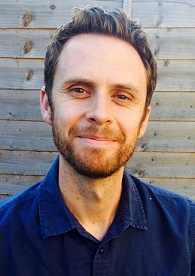 Ed Hogan is a Lecturer in Creative Writing at the Open University. His research interests include the contemporary short story, and states of attention in fiction writing practice. Ed’s novels include The Electric, and Blackmoor. His recent short stories have been longlisted for the Sunday Times Short Story Award, and shortlisted for the V.S. Pritchett Prize. His story ‘Single Sit’ won the Galley Beggar Press Short Story Prize in 2021.
Ed Hogan is a Lecturer in Creative Writing at the Open University. His research interests include the contemporary short story, and states of attention in fiction writing practice. Ed’s novels include The Electric, and Blackmoor. His recent short stories have been longlisted for the Sunday Times Short Story Award, and shortlisted for the V.S. Pritchett Prize. His story ‘Single Sit’ won the Galley Beggar Press Short Story Prize in 2021.
Elizabeth Dearnley is a folklorist, artist and Lecturer in Creative Writing at Edinburgh Napier University whose work explores fairy tales, horror and collective storytelling. Following a practice-based Leverhulme Early Career Fellowship at University College London exploring the transmission of folktales set in forests, she has since worked across academia and the arts to stage imaginative participatory events, interventions and installations. She has produced several projects exploring the intersections of folklore and place and is currently writing a book about the relationship between forests and fairy tales.
Sarah Bower is an associate lecturer at The Open University where she is also reading for a PhD in creative and critical writing. She is the author of two historical novels and (writing as S. A. Hemmings) one contemporary thriller. Her short fiction and non-fiction have been published in Asian Cha, the Historical Novels Review, MsLexia, Lighthouse Literary Journal and Writing in Education among others and also been broadcast on BBC Radios Three and Four. Sarah lives in Norwich.
(Photo with thanks from Kate Griffin)
Jessica Mookherjee is a poet of Bengali heritage. She was brought up in Mumbles, Wales, but has lived much of adult life in London and Kent. She has worked in Public Health for over 20 years and has a background in psychology and biological anthropology and socio-ecology. Her book Tigress (Nine Arches Press) was shortlisted as best second collection in the Ledbury Munthe Prize in 2021 Jessica is a board member of the Poetry Society and a Co-Editor of Against the Grain Poetry Press. For more information: https://thejessicapoet.com
Philip Seargeant
Philip Seargeant is the author most recently of The Art of Political Storytelling (Bloomsbury), described by The Irish Times as a ‘brilliant deconstruction of propaganda and how it co-opts dramatic and narrative technique, throwing into doubt truth, fact and identity’. He works as Senior Lecturer in Applied Linguistics at The Open University, where he teaches and researches language and communication. He has written and edited a dozen academic monographs, textbooks and collections on topics ranging from World Englishes, language and social media, to language and creativity. He regularly works as a consultant for the BBC and other media companies, and has won several awards for his short films on language and communication. He is a frequent contributor to publications such as Wired, The New European, Prospect, The Huffington Post, The Washington Post and The Independent.
Sarah Butler has three novels published by Picador in the UK and with fourteen international publishers: Ten Things I’ve Learnt About Love (2013), Before The Fire (2015) and Jack and Bet (2020). In November 2018, she published a novella, Not Home, written in conversation with people living in unsupported temporary accommodation in Manchester. Sarah's work explores ideas of home, belonging, identity, family, and urban landscapes. She is a Senior Lecturer in Creative Writing at Manchester Metropolitan University and has an MA in Creative Writing from University of East Anglia, an MSc in Urban Studies from University College London and a PhD in Creative Writing from The Open University.
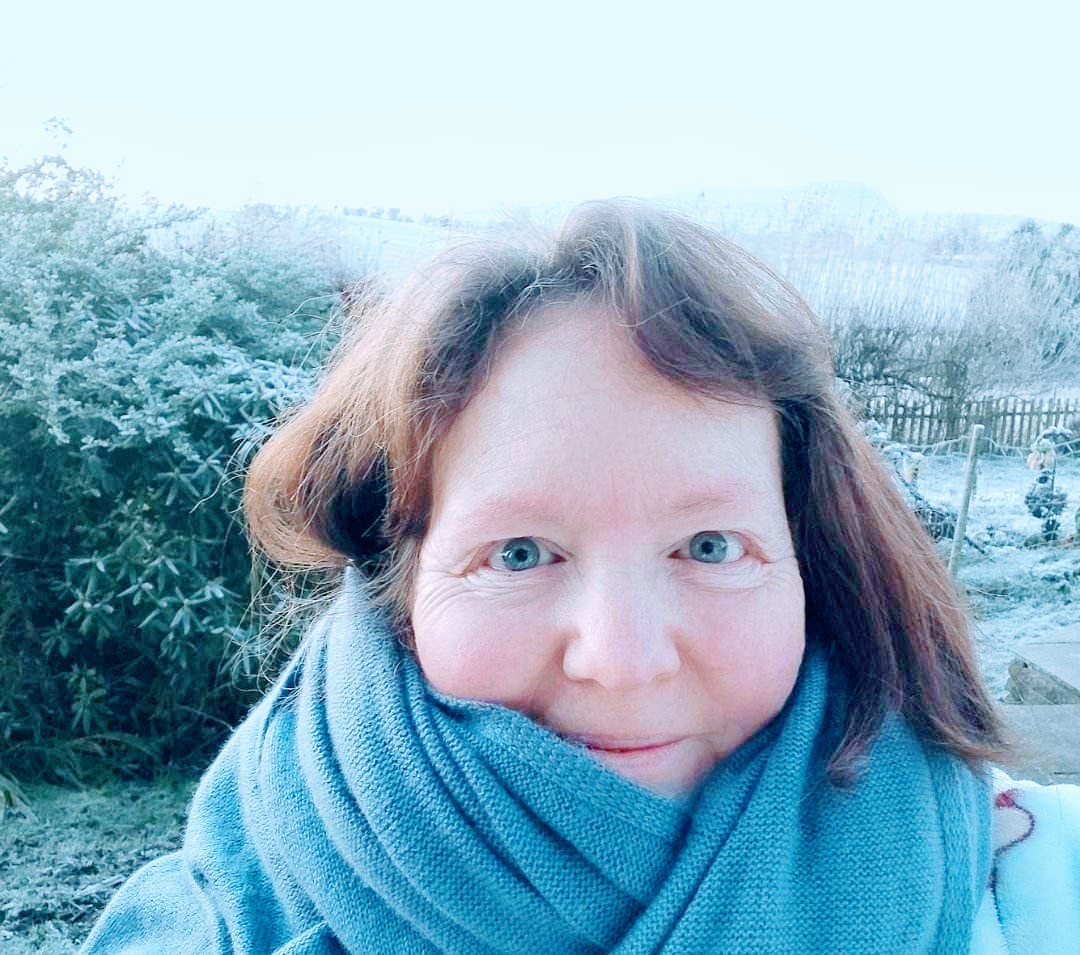 Melissa Bailey is a Staff Tutor and experienced associate lecturer, at The Open University, where she is also reading for a PhD in Creative Writing. She has been involved with a number of co-created writing and drama projects including standing in the rain as a living statute and constructing the eco installation Dodge. Her BA and PGCE were from University of London in English and Drama; her Creative Writing MA was achieved at Lancaster University.
Melissa Bailey is a Staff Tutor and experienced associate lecturer, at The Open University, where she is also reading for a PhD in Creative Writing. She has been involved with a number of co-created writing and drama projects including standing in the rain as a living statute and constructing the eco installation Dodge. Her BA and PGCE were from University of London in English and Drama; her Creative Writing MA was achieved at Lancaster University.
Anne Caldwell is a freelance writer based in West Yorkshire with a passion for writing about place and ecological themes. Anne Caldwell currently works for the Open University and as a Royal Literary Fund Fellow. In 2019, she was the co-editor of The Valley Press Anthology of Prose Poetry, alongside Oz Hardwick. Her fourth collection of prose poetry, Alice and the North, was published by Valley Press in November 2020. She has also co-edited a book of essays on prose poetry called Prose Poetry Theory and Practice (Routledge 2022).
Panel Chairs (in order of appearance)
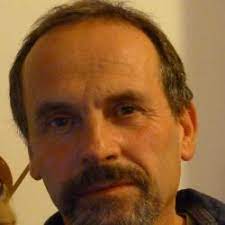 Derek Neale is Professor of Creative Writing at The Open University and is Co-Chair of the National Association of Writers in Education. His latest book is Writing Talk: Interviews with Writers about the Creative Process (2020). His creative work includes scripts such as Last Scenes (Liminalities 2021) and the novel, The Book of Guardians (2012). He is particularly interested in cross overs between genres, especially creative nonfiction, fiction and script, as reflected in his OU teaching chapters and books.
Derek Neale is Professor of Creative Writing at The Open University and is Co-Chair of the National Association of Writers in Education. His latest book is Writing Talk: Interviews with Writers about the Creative Process (2020). His creative work includes scripts such as Last Scenes (Liminalities 2021) and the novel, The Book of Guardians (2012). He is particularly interested in cross overs between genres, especially creative nonfiction, fiction and script, as reflected in his OU teaching chapters and books.
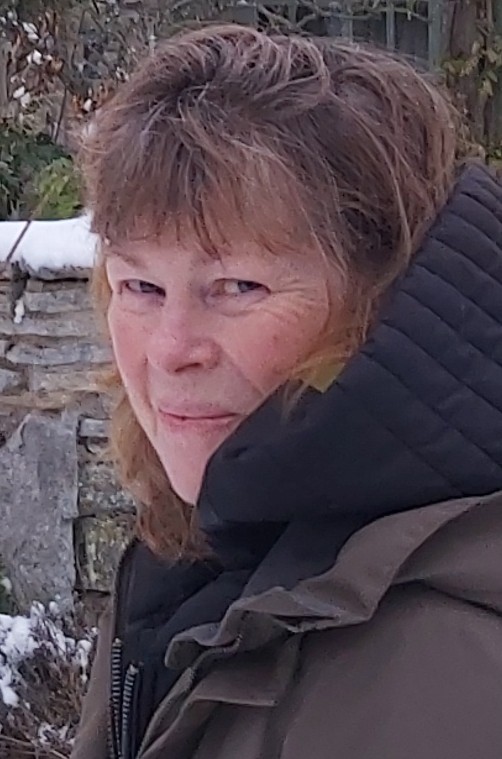 Nicola Watson Professor Nicola J Watson (The Open University) has a specialist interest in the history of the literature of place, with a focus on the emergence of the heritage practices of literary tourism and the writer’s house museum. She is the author of The Literary Tourist: Readers and Places in Romantic and Victorian Britain (Palgrave, 2006), and The Author’s Effects: On the Writer’s House Museum (OUP, 2020) along with an edited collection and many other associated articles. One of her current projects, Coastlines, collects, explores, and commissions coastal writing.
Nicola Watson Professor Nicola J Watson (The Open University) has a specialist interest in the history of the literature of place, with a focus on the emergence of the heritage practices of literary tourism and the writer’s house museum. She is the author of The Literary Tourist: Readers and Places in Romantic and Victorian Britain (Palgrave, 2006), and The Author’s Effects: On the Writer’s House Museum (OUP, 2020) along with an edited collection and many other associated articles. One of her current projects, Coastlines, collects, explores, and commissions coastal writing.
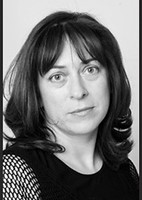 Siobhan Campbell is Senior Lecturer in Creative Writing at The Open University. She is a poet and critic. Siobhán was born in Ireland, where interests in post-conflict and cross-community work developed into her outreach in creative writing with military veterans. Her more recent foray into the research of creative writing as a social practice has let her to investigate the value of expressing creativity in palliative care. www.siobhancampbell.com
Siobhan Campbell is Senior Lecturer in Creative Writing at The Open University. She is a poet and critic. Siobhán was born in Ireland, where interests in post-conflict and cross-community work developed into her outreach in creative writing with military veterans. Her more recent foray into the research of creative writing as a social practice has let her to investigate the value of expressing creativity in palliative care. www.siobhancampbell.com
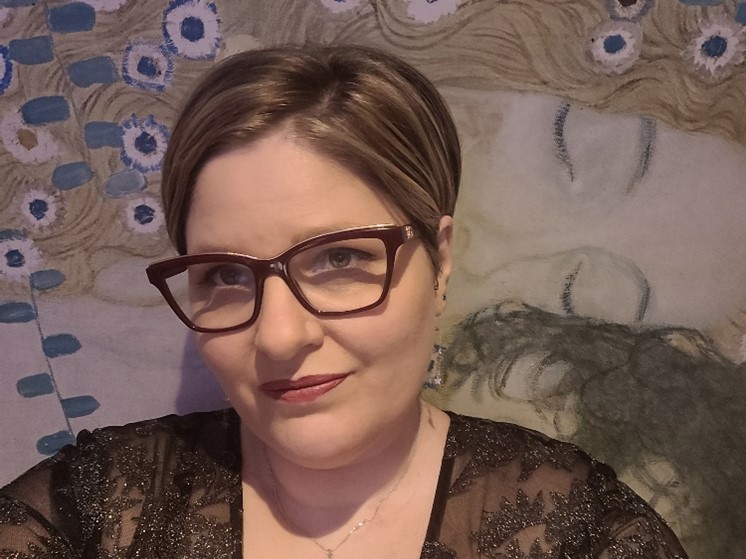 Jennie Owen is a Staff Tutor in Creative Writing, and an experienced Associate Lecturer with The Open University. She is a Pushcart and Forward Prize nominated poet, who has been published in a wide variety of journals, magazines, and anthologies. She has an MA in Creative Writing from Edge Hill University and an MA in English from The Open University. Jennie is currently reading for her PhD with Manchester Metropolitan University, with a focus on poetry and traumascapes.
Jennie Owen is a Staff Tutor in Creative Writing, and an experienced Associate Lecturer with The Open University. She is a Pushcart and Forward Prize nominated poet, who has been published in a wide variety of journals, magazines, and anthologies. She has an MA in Creative Writing from Edge Hill University and an MA in English from The Open University. Jennie is currently reading for her PhD with Manchester Metropolitan University, with a focus on poetry and traumascapes.
.JPG)
Contact Us
Contact us by email:
CCWritingOU@open.ac.uk
The Postal Address is:
Department of English and Creative Writing
The Open University
Walton Hall
Milton Keynes
MK7 6AA
Tel +44-1908-652092
